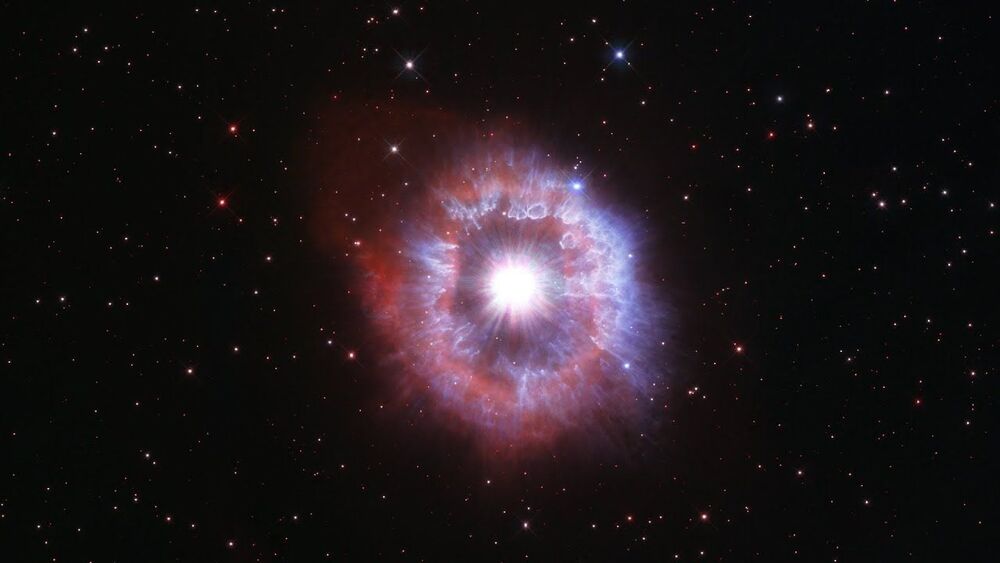In celebration of the 31st anniversary of the launching of NASA’s Hubble Space Telescope, astronomers aimed the renowned observatory at a brilliant “celebrity star,” one of the brightest stars seen in our galaxy, surrounded by a glowing halo of gas and dust. Credit: NASA, ESA, STScI
The mighty blue giant AG Carinae is not your normal star. One of the brightest stars in our Milky Way galaxy, AG Carinae is sizzling hot, shining with the brilliance of 1 million suns. You would need super sunscreen if you lived in the star’s vicinity. The star is up to 70 times heftier than our Sun and burning fuel at a ferocious rate.
Its opulence means that the mammoth star is living life in the fast lane. Pouring out so much energy takes a toll on the stellar behemoth. It is prone to convulsive fits, expanding in size like a hot air balloon and shedding its outer layers of material into space. One or more giant eruptions 10000 years ago created the beautiful, expanding shell of dust and gas seen here. Stars like this one are rare: less than 50 reside in our local group of neighboring galaxies.
